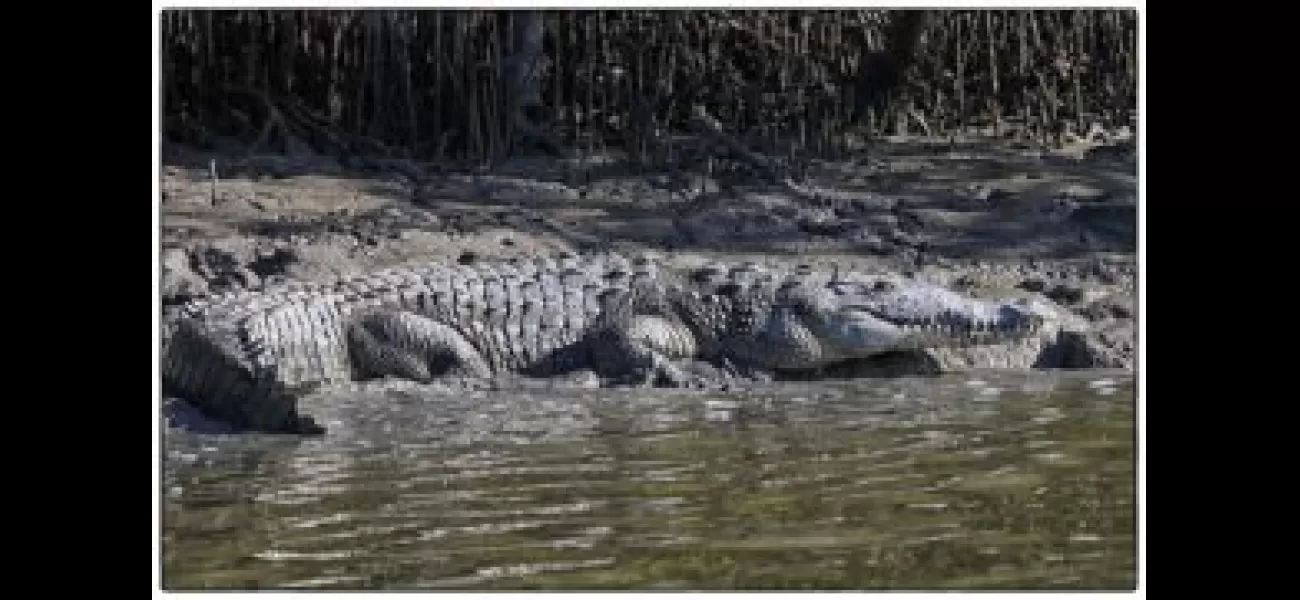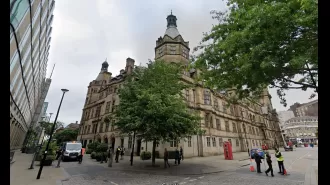Over 50 saltwater crocodile nests found in Bhitarkanika.
"Over 55 saltwater crocodile nests have been found by Bhitarkanika National Park personnel in the Kanika forest range during nesting season, according to ACF-cum-Range in-charge Manas Kumar Das."
June 11th 2024.

In Kendrapara, the Bhitarkanika National Park team has recently discovered more than 55 nests of saltwater crocodiles within the Kanika forest range. According to Manas Kumar Das, the ACF-cum-Range in-charge of the Kanika forest range, these nests were found during the ongoing nesting season at various locations such as Chintamani Mohanty creek, Thanapati, Mangalpur, Saguna Chera creek, Jalahar creek, and Bhitarkanika Patia creek inside the national park.
It is a fascinating sight to see female crocodiles laying their eggs in the mangrove forest near the waterbodies of the park. They carefully guard their eggs until the hatchlings emerge after about 60 to 70 days. The process involves the creation of a mound-like structure made of mangrove leaves, in which the eggs are laid. As the female crocodiles in Bhitarkanika National Park can reach up to 14 feet in length, they can lay anywhere between 45 to 60 eggs. However, if a female crocodile is longer than 14 feet, she may lay even more eggs. Unfortunately, the forest officials have observed that around 50% of the laid eggs are infertile.
To ensure the safety of the crocodiles and their hatchlings, the Rajnagar mangrove forest division has imposed a three-month ban from May 1st to July 31st. This will allow them to accurately count the number of crocodile nests in the waterbodies of Bhitarkanika National Park and the nearby rivers. Additionally, tourists are not allowed to enter the areas where crocodiles are known to reside, in order to avoid any potential conflicts. The forest officials have also requested the villagers living near the rivers to inform them if they come across any crocodiles outside the park area.
One of the main reasons for the crocodiles to stray from their natural habitats is the hyper-salinity in the waterbodies of Bhitarkanika National Park during the full moon and new moon period. This change in their environment causes their body temperature to fluctuate, leading them to search for less saline water. As a result, they may end up sneaking into other rivers such as Brahmani, Baitarani, Patashala, Govari, and Kharasrota, which can lead to conflicts with humans. Unfortunately, in some cases, this has resulted in crocodile attacks on the villagers living near these rivers. Therefore, it is important for the forest officials to be informed if anyone comes across a crocodile outside the park area.
It is a fascinating sight to see female crocodiles laying their eggs in the mangrove forest near the waterbodies of the park. They carefully guard their eggs until the hatchlings emerge after about 60 to 70 days. The process involves the creation of a mound-like structure made of mangrove leaves, in which the eggs are laid. As the female crocodiles in Bhitarkanika National Park can reach up to 14 feet in length, they can lay anywhere between 45 to 60 eggs. However, if a female crocodile is longer than 14 feet, she may lay even more eggs. Unfortunately, the forest officials have observed that around 50% of the laid eggs are infertile.
To ensure the safety of the crocodiles and their hatchlings, the Rajnagar mangrove forest division has imposed a three-month ban from May 1st to July 31st. This will allow them to accurately count the number of crocodile nests in the waterbodies of Bhitarkanika National Park and the nearby rivers. Additionally, tourists are not allowed to enter the areas where crocodiles are known to reside, in order to avoid any potential conflicts. The forest officials have also requested the villagers living near the rivers to inform them if they come across any crocodiles outside the park area.
One of the main reasons for the crocodiles to stray from their natural habitats is the hyper-salinity in the waterbodies of Bhitarkanika National Park during the full moon and new moon period. This change in their environment causes their body temperature to fluctuate, leading them to search for less saline water. As a result, they may end up sneaking into other rivers such as Brahmani, Baitarani, Patashala, Govari, and Kharasrota, which can lead to conflicts with humans. Unfortunately, in some cases, this has resulted in crocodile attacks on the villagers living near these rivers. Therefore, it is important for the forest officials to be informed if anyone comes across a crocodile outside the park area.
[This article has been trending online recently and has been generated with AI. Your feed is customized.]
[Generative AI is experimental.]
0
0
Submit Comment





